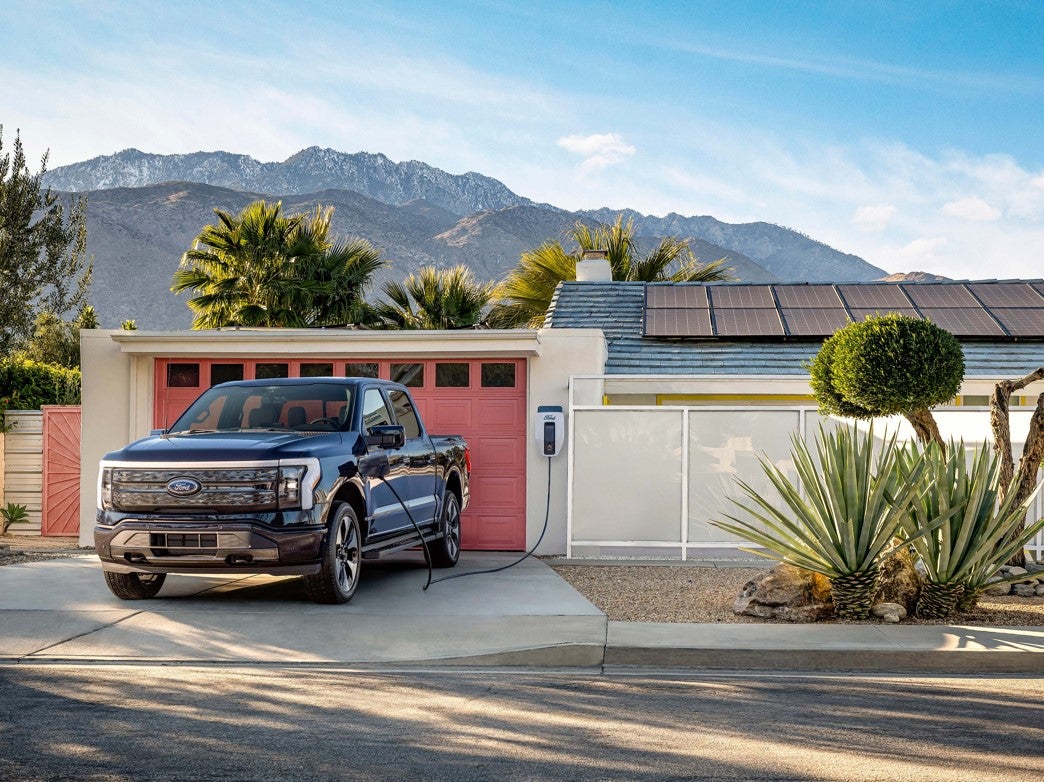
Whether innovating new tech under their brand name – think Mercedes entering the residential energy storage market – or partnering with like-minded brands to better serve consumers (as we’ve seen with Ford and Sunrun) diversification is key for meeting consumers ever-increasing needs, and financial stability for car brands.
Mo Morgan – Lead Strategist at Great State – describes new cross-market partnerships and innovations that are becoming a priority for automotive brands’ long-term strategies.

Discover B2B Marketing That Performs
Combine business intelligence and editorial excellence to reach engaged professionals across 36 leading media platforms.

Why are cross-market partnerships becoming more important?
The automotive sector has long depended on a complex ecosystem of consumer brands and their suppliers. These relationships are for the most part B2B. Occasionally, drivers have been greeted by one prestige brand in support of another: be it BMW including Harmon Kardon audio systems, Ferraris developed with renowned design house, Pininfarina, or Land Rover paired with Barbour. In each case, affinity for each brand is intended to reinforce the other.
As the sector evolves to embrace electrification, automation and changes in consumer behaviour, new partnerships will emerge and become more visible. Rather than brands partnering for prestige on the forecourt, new partnerships will be just as much about functionality. The big tech brands are embracing this. For example, automotive giant Stellantis has partnered with tech giant Amazon. The former will build vans for delivery fleets, while the latter will provide in-car digital interfaces evolved from its existing tablets and voice interface.
For automotive, where are these opportunities greatest?
Historically, automotive brands were top-of-mind for road-going vehicles, getting people and stuff from A to B. For many, the car became their default personal transportation. But the proliferation of car ownership has broad considerable drawbacks. Not only environmental impact but all high cost of fuel, insurance and parking.
As these factors have increased, there’s a sense that consumers are considering their transport options. Some have found hybrid or all-electric vehicle ownership suits them better. Others might be replacing their vehicles less frequently. And as urban driving is disincentivised, many are more conscious of the spectrum of transport options available to them.
That said, electric vehicles can (and autonomous vehicles may) offer more than transportation alone. An electric car could be thought of as a battery on wheels, capable of fetching energy from somewhere cheaper than the domestic supply. These are also smart devices, equivalent to other connected consumer tech in common use.
Can you give us some good examples?
Partnerships to embrace change in the automotive sector are many and varied. To provide utility beyond Apple Carplay and Android Auto, firms with a common interest in consumer mobility are teaming up. While Stellantis brands such as Jeep, Fiat and Peugeot will get the Amazon Appstore on the dashboard, Ford owners can access the Play Store thanks to a partnership with Google.
Honda and Sony have joined forces to create a car platform to support models to be released under both brands. The Chinese bus manufacturer Yutong partnered with ABB, a maker of charging infrastructure, to build the zero-emission transport infrastructure for the Qatar World Cup, including the world’s largest e-bus depot. Audi is working on a research project with electrical manufacturer Hager to explore bi-directional charging: domestic systems that can charge the car and also use the car to charge the home.
In the background, tech giants that power the digital economy are keen to diversify away from mobile, so are already heavily involved in automotive – chip giants including Qualcomm and Nvidia, and the major cloud platforms from Microsoft, Google and Amazon. Big tech is also looking towards connectedness and autonomy. Since 2017, Google, Amazon, Microsoft, and Apple have acquired or invested in 17 connected or autonomous vehicle companies.
How is connected mobility pushing car manufacturers into the services space and how does this change the automotive landscape?
Our relationship with consumer technology and digital services is blurrier than with cars. iPhone users do not think of themselves as ‘phoners’. Social media users do not consider themselves ‘owners’. So as the digital-enabled service culture proliferates, so consumers may feel differently about being a car owner, driver or bike rider.
But if we’re vehicle users, how might that change how we feel about owning them? Would we be more inclined to own by rental, or even subscribe? And if so, might we prefer to subscribe to journeys, rather than specific vehicles?
If some consumers lose the desire to own their car, or to own fewer of them, this would have a major commercial impact. Many of the world’s best-known car manufacturers have been exploring this for a while. Free Now, a joint venture between Mercedes and BMW, offers vehicle-agnostic mobility from taxis to city cars, bicycles and scooters. Users are then free to choose the mode that suits their journey. So here we see automotive manufacturers evolving, to use their own words, into mobility service-providers.
How do the emerging partnerships between car and tech companies benefit consumers?
Changes in vehicle experiences for consumers will be gradual, as ever they have been. In terms of the vehicles themselves, consumers will have an in-car digital experience that’s more familiar to them, as opposed to one that’s bespoke to each car manufacturer.
But true integration has been slower in automotive than in the tech sector. The digital aspect of the driving experience is by no means as tightly integrated as that of mobile. The best experiences currently come from connecting your phone to your car. The proliferation of digital services around mobility then gives drivers many options, but at the cost of simplicity. A driver may have an app to control their car, but then another for each charging and parking provider, their choice of navigation platform, their home charger and utility provider, and perhaps even roadside recovery.
The best digital-enabled mobility experiences may come from opening these platforms to allow seamless integration. It’s technically possible, but there are numerous examples from big tech where this has proven undesirable for them. All interested parties will want to ‘own’ the customer relationship as opposed to being intermediated by the car maker, which will be at odds with the best user experience from behind the wheel.
How important are brand values and attributes for automotive companies? Will cross-market partnerships weaken that brand affinity aspect for car brands?
The automotive industry relies on strong consumer-facing brands and invests heavily in developing and maintaining them. Cars are among the most expensive things a consumer might own, so the choice of one brand over another is often significant. Our brand of car, as with most brand relationships, is a statement of ourselves. Cars are not advertised on how easily you can park them, but rather how they make you feel. Maybe you want to feel safe, or stimulated, or wealthy.
Big tech too has been successful brand-building, with some becoming synonymous with the utility they provide. But traditional brands have often struggled to coexist with them. Many have found social media complex to navigate, having found it hard to expand to include a more conversational style. Many have ended up looking and sounding broadly the same.
The same risks play out when adding big tech’s utility to cars. Car brands stand for something about ourselves, whereas tech brands often stand for something of themselves. Car brands tell us who we are. Tech brands tell us who they are. So, car brands need to choose carefully how they align, or they risk damaging their differentiation. Can their emotionally-driven brands maintain relevance if the majority of a car’s functionality is provided by a tech brand?
Mo Morgan is a Lead Strategist at Great State with extensive experience as a founder, consultant and as a leader in global and niche agencies. In his agency roles, Mo has led teams in developing product and digital strategies for a range of well-known brands across various sectors including automotive, FMCG and healthcare. Mo’s work applies research to improve brand experiences; closing the gap between brands’ aspirations and the digital-era expectations of customers.
As a consultant, he has worked with clients ranging from global brands to start-ups, providing strategic consultancy across brand, product and innovation. Mo is particularly proud to have worked on projects concerning sustainability, social impact and cultural change.






